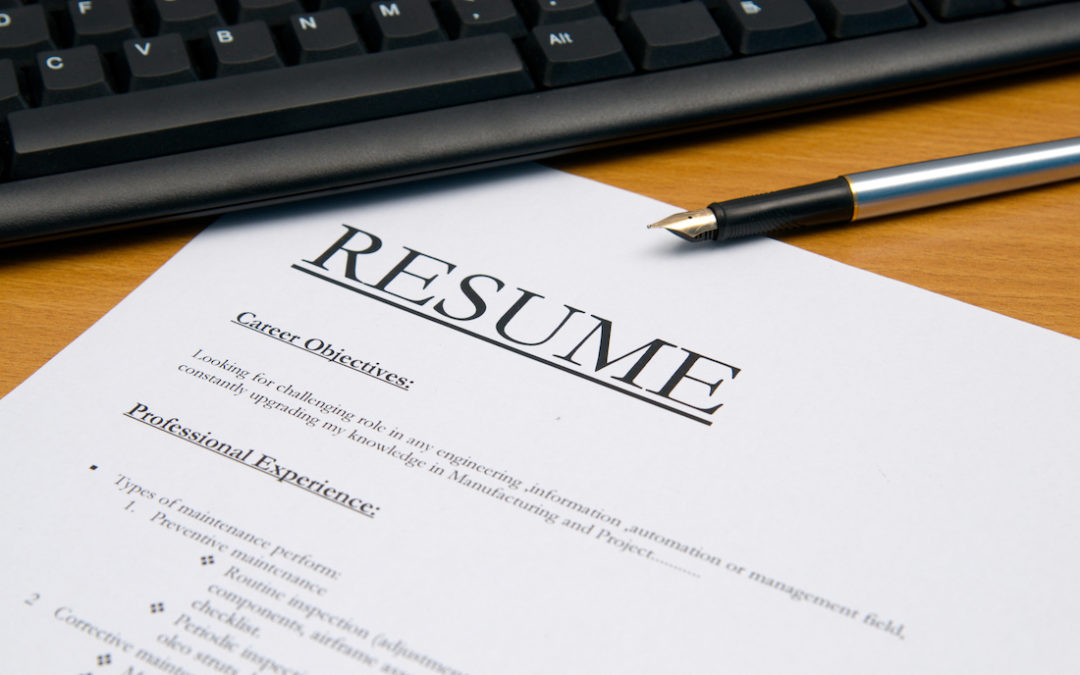
Jul 28, 2017 | Interview Coaching
You aced the interview! You highlighted your fantastic skills, let your personality shine through, and now you just wait. After tons of practice and coaching, you’ve finally done it.
After all, you’ve done all you can so the rest is on your potential future employer.
Not so fast. While, yes, you should be proud of yourself for excelling at that interview, you’re not quite done yet.
One of the best ways to stand out to a company is by sending thank you notes after the interview. Believe it or not, failing to send a quick thank you may actually harm your chance of getting the job!
Don’t undo your hard work! keep reading for more info on why you need to send these notes, when to send them, and what to include.
Why Thank You Notes Still Matter
It’s understandable that you may have other interviews lined up, so writing a thank you letter may be the last thing on your mind. But don’t let business harm your chances of advancing your career!
The bottom line is that, yes, you absolutely should still send a follow-up. This shows the interviewer or interviewers that you’re thankful for their time.
Yet there’s a bit of a more psychological reason why we still send a follow-up.
Thank you notes have become a common practice. Thus, sending a note shows that you’re aware of the norms and expectations of the business world.
The right thank you note shows that you’re courteous and friendly — two huge assets any team is looking for.
It also gives you a fantastic way to show that you really are interested in the job! It shows that you’re willing to go the extra mile and do everything necessary to do a good job.
How Soon Should You Send Thank You Notes?
The general rule of thumb is to send a thank you note as soon as possible. Be it an e-mail, snail mail, or even a phone call, it’s important that you follow up here.
And fast.
You should aim to get your thank you note out to the interviewer(s) the same day of your interview. This means setting aside some time but think of it as in investment in your career.
There’s no such thing as too soon. As soon as you get home from your interview, start thinking about how you can craft the perfect thank you note.
What Should You Include?
You may have some trouble striking the right tone with your thank you notes. If you find yourself at the computer with a blank document, here are a few good tips you can follow.
- Always be specific. The more relevant information to the interview you can include, the more you’ll stand out. You don’t want your thank you note to sound canned or like it was hastily written.
- If it was a group interview, send a note to everyone you interviewed with. It doesn’t matter how much time it’ll take. You’re going to impress them if you can individualize your letters.
- Be sure to highlight your skills again. While this isn’t your cover letter, it still presents a great opportunity to remind them of why you’re the right person for the job.
Get Some Help Before Your Big Interview
If you’re having some trouble with your resume or could just use a few interview tips, get in touch! We’d love to help you craft the perfect resume and get ready for your interview. Get your free consultation and get your career on track!
And if you’ve already completed your interview, what are you waiting for? Follow up and show them that you’re the right candidate!

Jul 23, 2017 | News & Events
As the founder of Elite Resume Writing Services, Inc., Kiser has helped a number of local professionals find fitting positions, publishes eliteresumewriting.com
(Atlanta, Georgia)– A local entrepreneur received special recognition earlier this month. Wanda Kiser, founder of Elite Resume Writing Services, was the focus of a feature article in the latest issue of VoyageATL, an online magazine supporting small businesses and the people behind them. Kiser established her company after building an extensive background in Operations and Training & Development.
Kiser began her journey with a Fortune 100 company where she spent more than two decades successfully filling a variety of leadership roles. During the post-millennial employment crisis, she devoted a great deal of her time and experience to employees facing layoff, offering assistance with resume building and providing interview coaching services in Atlanta, Georgia. She likewise drew from additional resources to pair employees’ abilities with job openings in other areas of the company.
Kiser’s employees were ultimately among a handful to be placed in new positions rather than face unemployment. Following those experiences, Kiser made the decision to branch out on her own in the Careers industry. She went on to complete extensive training courses and received numerous certifications in the field. At the same time, she attended an array of relevant seminars and conferences to further hone her skills and experience.
Kiser holds an MBA in Advanced Leadership as well as a BBA in Business Management and is a certified Six Sigma Green Belt. Additional credentials include being a Certified Professional Career Coach, Employment Interview Professional and Professional Resume Writer as well as an Academy Certified Resume Writer.
This was not the first accolade for Kiser; in fact, she has a number of distinctions under her belt. She has been a contributing force in a number of books related to resume creation and authored a long list of articles on topics pertaining to her field. Kiser has also been named a top industry-wide performer multiple times and was inducted into the 2009-2010 Cambridge Who’s Who Executive, Professional and Entrepreneurial Registry.
Ongoing studies point to considerable value in the resume services Atlanta, Georgia residents receive from companies like Elite Resume Writing Services, indicating as much as a 40 percent increase in job placement rates for candidates with professionally written resumes. Kiser notes, “There’s no greater reward than seeing deserving people realize their hopes and dreams, and knowing that you played a part in it.” In her interview with VoyageATL, she also stated, “Simply put, I love coaching and developing graduates, professionals and executives, identifying their value and equipping them with the tools and skills to realize their career goals.”
Kiser remains well-versed on changes in the Careers industry via conferences and ongoing education and plans to continue along those lines moving forward. About Elite Resume Writing Services, Inc.: A boutique-style career services firm offering professional resume writing (resume services atlanta ga), interview training, and career coaching services among others, Elite Resume Writing Services is committed to positioning job seekers for success in today’s ever-changing employment landscape.
Media Contact:
Wanda Kiser
wanda@eliteresumewriting.com
http://voyageatl.com/interview/meet-elite-resume-writing-services-serving-atlantametro/
Atlanta, GA 30328
(404) 692-4337

Jul 18, 2017 | Resume Writing Tips
You just sent out your updated resume to a bunch of companies that you would be thrilled to work for. You wait and wait. Soon, you realize weeks have gone by and no one has called you back. Frustrated, you give up and go back to your daily grind at the job you hate.
Wait just a minute.
Before you let the feeling of failure eat away at you, there’s something you need to know.
Recruiters are ignoring you for a reason. And likely, that reason is your resume. Luckily, this is a problem that can be easily fixed.
You just need to learn how to create a resume that recruiters will love.
And how do you do this? Keep reading to find out!
Keep It Concise
The ideal length of your resume varies according to experience.
Typically, your resume should only be one page, especially if you are a new graduate or an early professional. Two-page (or lengthier) resumes are only acceptable if you have several years of experience.
Simple Formatting
Recruiters only spend 5 to 7 seconds looking at a resume.
Therefore, you want to make it easy for them to scan.
There’s no need to get fancy with the fonts on your resume. And, unless you are applying for a job as a graphic designer, you should keep the graphics to a minimum as well.
Focus on Accomplishments over Duties
Writing down more job duties than accomplishments is a huge red flag to recruiters.
It’s okay to list out some of your job responsibilities. However, recruiters are far more interested in learning about the accomplishments that you are proud of.
If possible, include metrics and goals so recruiters can easily measure your success against other candidates. Recruiters are attracted to eye-catching numbers.
Sentence Structure
Remember, you’re writing to impress a recruiter, not a high school English teacher.
When listing your skills, duties, and accomplishments, write in the first person tense, but avoid using personal pronouns and full sentences.
For example, recruiters will love:
“Conceptualized and created high-impact promotional materials.” (notice leaving out the pronoun “I”)
They will dislike:
“I developed promotional materials…” or “Develops promotional materials”
Also, make sure you are writing in the correct tense. Use present tense to talk about your current job and past tense to talk about your previous jobs.
Be Real About Your Skills
“Proficient in Microsoft Office, Microsoft Word, and PowerPoint.”
For some reason, everyone feels a need to list this on their resume. But, recruiters hate it. Unless you know all the ins and outs of these programs, don’t bother listing them.
The same goes for other experiences with technology, languages you speak, and courses you have taken. Recruiters don’t care about mere proficiency. They want people who have advanced levels of expertise in these areas.
Also, don’t embellish your skills to impress a recruiter. 62 percent of hiring managers have caught candidates doing this. Lying or embellishing about your skills is simply a waste of everyone’s time.
Tailored Resumes
Recruiters love it when your resume is tailored to the specific job you are applying for.
Make sure your resume isn’t just an ongoing list of all of your previous jobs. Be picky about which roles, duties, accomplishments, and skills you include.
How to Create a Resume Recruiters Will Love: Wrap Up
Hopefully, this article gives you a clearer picture on how to create a resume recruiters will love.
If, however, you still find the resume writing process to be overwhelming, contact us. We can help develop the perfect resume!

Jul 7, 2017 | Career Coaching
Are you interested in making a career switch? Or, do you want to learn more about how you can succeed in your current position?
Either way, a career coach can help you get there.
Studies show that when you’re happy at work, that tends to translate into other areas of your life, contributing to an overall feeling of satisfaction.
As such, who wouldn’t want a little coaching to help them reach the maximum level of contentment with their job?
If you’ve ever wondered, “What does a career coach do?” we’d love to explain.
Today, we’re taking a look at a few top responsibilities associated with the title, so you can see for yourself the benefits a career coach offers.
Ready to learn more? Let’s get started!
1. What Does a Career Coach Do? The First Step
To begin, a career coach will assess your current work situation.
Are you happy in general with only a few things you’d like to change? Or, are you ready to move in an entirely different direction?
This conversation will typically take place in a one-on-one setting and will be kept confidential. It could occur in person, over the phone, or on the internet.
Regardless of the method of communication, you should feel encouraged to share openly about where you are and where you’d like to be.
2. A Career Coach Helps You Visualize Outcomes
Once your career coach has a grasp of your present situation, he or she will then want to know where you envision yourself in the future.
Are you currently working a 9-to-5 desk job but dream of one that lets you travel more? Are you seeking a more flexible work-life schedule? Do you want a career that’s more closely aligned to your degree and skill set?
Your career coach will ask questions like these to draw from you what your ultimate career goals are.
Often, you can visualize the career you want for yourself, but you can’t put your finger on exactly which type of job will get you there.
This is one of the benefits of career coaching.
Your coach will assess your strengths and weaknesses and help you find the job path that’s best aligned with them.
Then, he or she will define a list of outcomes that you’re ready to work toward. Having these concrete goals in place will make taking the first steps that much easier.
3. You’ll Work Together on Each Step
After you collaborate to define your expected outcomes, your career coach will create an executable action plan to help you get there.
Depending on your specific situation, this could consist of smaller-scale weekly steps or more significant changes you should make every month or so.
Once your timeline is set, your career coach will schedule to meet with you accordingly.
During these meetings, he or she will check your progress, help you work through any issues, and encourage and motivate you to complete the next part of your journey.
Securing the Future You Want: Your Professional Resource
Are you still asking the question, “What does a career coach do?”
If so, you’ve come to the right place.
Our professional services, including career coaching and resume writing, can help you identify and secure the job of your dreams.
Feel free to contact us for more information, and let’s re-write your future!




